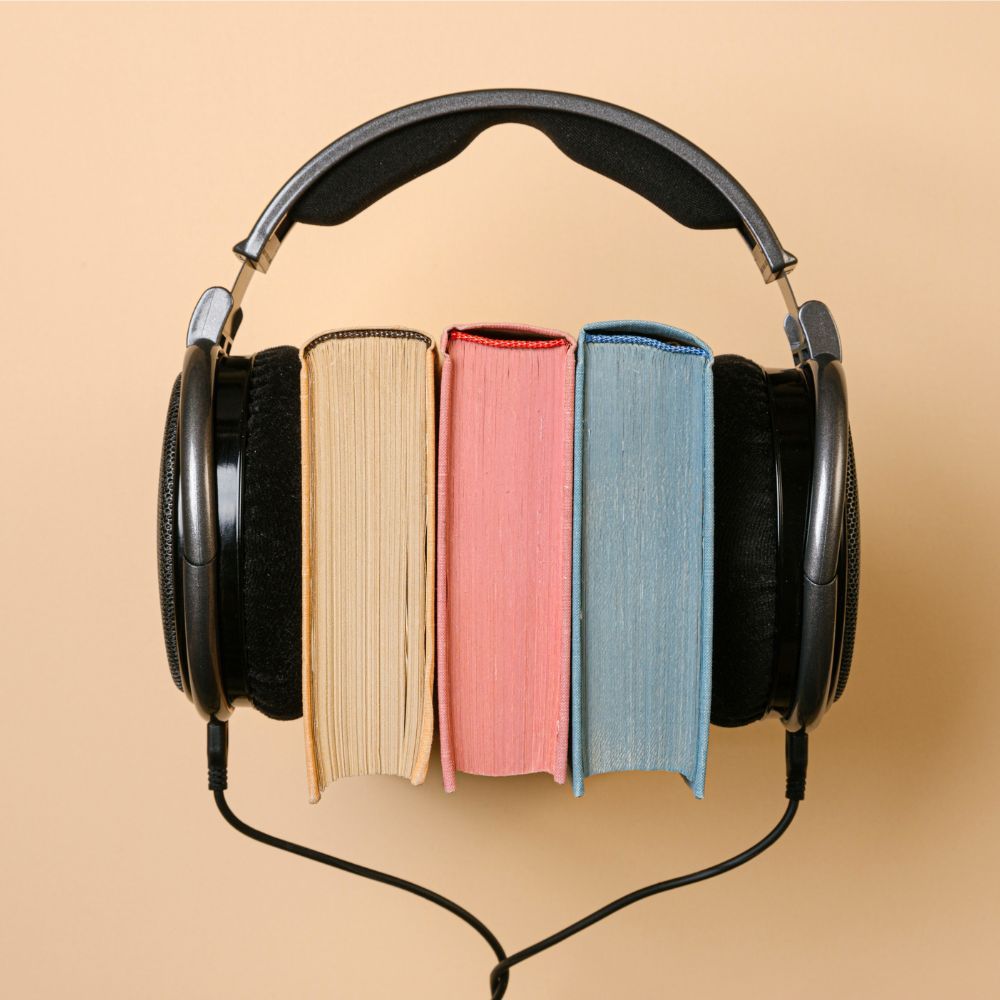Compose Your Own Symphony: the Best Music Theory Book
Learn the features to look for and how to choose the best music theory book for your budget and situation, along with our Top 5 recommendations!

Music theory is the backbone of every great composition, guiding the maestros of music to refine and perfect their craft. If you're passionate about creating outstanding tunes, then having a good understanding of music theory should be high on your priority list.
The best way to dive into the intricacies of music theory and understand music on a deeper level is through music theory books. These books provide a wealth of knowledge that can elevate your music-making process to the next level.
In this article, we'll take a deep dive into the world of music theory books, exploring the best options available and helping you to find the perfect one to suit your needs.
Overview of Books on Music Theory
Music theory books have a long and rich history, and have served as essential resources for musicians of all levels of proficiency and dedication. From beginner music theory books to advanced level learning materials, these books have played a crucial role in the development and refinement of musical knowledge, skills, and creativity.
Since the classical tradition, musicians have sought to write music that is both technically sound and aesthetically pleasing to the ear. As such, music theory has been an indispensable part of the creative process, and has provided the basis for understanding the structure, composition, and harmonic relationships of different styles of musical works.
Whether aspiring musicians want to learn music theory for guitar, bass guitar, or jazz music, the foundations of music theory remain a worthwhile investment for anyone who hopes to produce quality music.
The best music theory books have provided musicians with a strong foundation of knowledge that has aided them in becoming complete musicians. These books have often been designed to cater to the needs of both novice and advanced players, offering a blended approach to learning that takes plain and simple terms, musical examples, and musical excerpts into account.
Several music theory textbooks have been written for students who are taking undergraduate courses in music, and have helped build a solid theoretical base for music theory novices.
For those interested in modern music theory or electronic music production, there are several good music theory books that provide valuable insights into the process of creating electronic music. These books use computer musicians and music producers as their target audience, and provide practical, hands-on advice and tips for learning music theory.
Similarly, while classical music continues to play an important role in the world of music, several beginner music theory books have also been written for those who want to learn music theory in the context of rock, pop, and other contemporary genres.
Buyer’s Guide
If you're a musician looking to deepen your understanding of music theory, you'll want to invest in a high-quality music theory book. But with so many options available on the market, it can be overwhelming to choose the best one. In this buyer's guide, we'll provide you with the features and benefits to look for when picking a music theory book, so you can make an informed decision and improve your music theory knowledge.
Level
Firstly, consider the level of the book. Is it designed for beginners, intermediate players, or advanced players? This is important, as you don't want to waste time on theory that's too basic or too advanced for your current skill level.
- If you're a novice, look for a book that covers the basics of music theory fundamentals like key signatures, tonal harmony, and ear training.
- If you're an intermediate or advanced player, you'll want a book that dives deeper into more complex topics like key centers and practical application of theory.
Author
In addition to the level of the book, take a look at the author's background.
- Are they a certified music teacher, a practicing musician, or a music producer? This will play a major role in the type of knowledge that is provided in the book.
- For example, a jazz theory book written by a professional jazz musician might be more valuable to a jazz instrumentalist than a book written by an electronic music producer.
Format
Another key factor to consider is the book's format.
- Do you prefer physical sheet music or an electronic format? Many readers prefer a print version because it allows for in-depth study and easy annotation.
- Others may prefer an e-book or online audio version because it provides a more modern and interactive approach to learning music theory, such as at the Hello Music Theory website.
Specialization
If you're focused on one instrument, you may want to choose a music theory book that specifically caters to that instrument.
- For example, if you're a guitarist or bass player, look for a guitar music theory book or bass guitar music theory book that includes practical exercises and examples for your specific instrument.
Learning Aides
Finally, consider the practical aspect of the book.
- Does it include practice questions or exercises to help you apply what you've learned? A practical guide is essential to ensure that you are able to apply your new music theory knowledge to your playing.
- Additionally, if you plan on taking the AP Music Theory Exam or attending college for music, you'll want to look for a book that is tailored to those scenarios.
In conclusion, choosing a good music theory book is crucial for any practicing musician or music producer. When making your selection, consider the level of the book, author's background, format, practical exercises, and instrument-specific examples.
With the right music theory book, you can become a more complete musician and elevate your music knowledge, composition, and performance abilities.
Top 5 Music Theory Books
Alfred's Essentials of Music Theory
This comprehensive music theory textbook by Andrew Surmani is perfect for anyone from beginners to advanced players. It contains lessons on various topics including note reading, rhythm notation, clefs, scales, chords, transposition, harmony, songwriting tips and more. With audio files for ear training exercises as well as workbook pages for practice and reinforcement, this book is a great tool to help readers develop their music theory skills.
Music Theory For Dummies
This beginner-friendly guide by Michael Pilhofer and Holly Day covers all the basics of music theory in an easy-to-understand format. It includes sections on scales, intervals, chords, keys, rhythm, meter and notation. With plenty of exercises and helpful diagrams, this book makes it easy for readers to learn music theory and start applying their knowledge in practical ways.
The Jazz Theory Book
A must-read for jazz musicians and music students, this book by Mark Levine offers a comprehensive guide to jazz theory. It covers topics such as scales and modes, chord progressions, and improvisation. One great aspect of this book is that it includes musical examples from famous jazz musicians, which allows readers to learn from the masters. Besides being a great resource for learning jazz theory, the book is also well-written and entertaining.
Music Theory Remixed: A Blended Approach for the Practicing Musician
This book by Kevin Holm-Hudson is designed for both novice and advanced-level players who want to improve their understanding of music theory in a practical context. It covers core concepts such as the construction of scales, triads, and chords while also delving into more complex topics like harmonic analysis and songwriting. With plenty of musical examples, exercises, and diagrams, this book is sure to give readers a strong foundation in music theory.
The Musician's Guide to Theory and Analysis
Ideal for college-level music students, this book by Jane Piper Clendinning and Elizabeth West Marvin covers a wide range of topics in depth. It includes detailed exercises and musical examples to help readers develop their knowledge of tonality, form, rhythm, meter and more. The clear writing style makes it easy to understand the material, even for those with limited experience in music theory.
FAQs About the Best Music Theory Books
What are music theory books?
Music theory books are written publications that contain information and teachings on musical theory. They are designed to provide readers with a deeper understanding of music, including knowledge on scales, harmony, rhythm, and more. They are useful not only for beginners, but for intermediate and advance players as well.
What are the best music theory books for beginners?
For those new to music theory, it is recommended to start with basic music theory books such as "Music Theory for Dummies"
Are there music theory books specifically for guitarists?
Yes! Many music theory books are geared towards guitarists and can help them better understand the instrument's unique characteristics. Some highly recommended books include "Music Theory for Guitarists: Everything You Ever Wanted to Know But Were Afraid to Ask," "Fretboard Theory," and "The Guitarist's Music Theory Book."
Can electronic music producers and computer musicians benefit from music theory books?
Absolutely! While electronic music production may seem more technological and less focused on music theory, having a solid understanding of musical theory can greatly enhance production skills. Some great music theory books for electronic musicians include "Electronic Musician's Guide to Music Theory," "The Dance Music Manual: Tools, Toys, and Techniques," and "Music Theory for Computer Musicians."
Does learning sheet music require reading music?
Yes, being able to read music is crucial to learning music. Sheet music provides essential information on rhythm, pitch, and timing, which are the building blocks of music.
Are there music theory books that are ideal for self-study?
Yes, many music theory books are designed to be used for self-study. Some popular titles for self-directed learners include "The Everything Music Theory Book," "Music Theory 101," and "Music Theory for Dummies."
Is there an ultimate guide to music theory?
Not per se, but the most comprehensive one we've found is "The Musician's Guide to Theory and Analysis", mentioned above.
Can music theory books be used in college courses?
Yes, many colleges offer music theory courses and use music theory books as part of the curriculum. Some popular music theory books that are widely used in college courses include "Tonal Harmony," "The Oxford Companion to Music," and "The Norton Manual of Music Theory and Analysis."
Does the first half of a music theory book cover the foundational basics?
Yes, most music theory books are structured to start with the basic foundational concepts and gradually become more complex as the book progresses. The first half of a music theory book will generally cover the foundational basics of music theory, making it ideal for beginners.
Are there any other books recommended that aren't already featured in this article?
If you've already read the recommended ones in this article and want to continue your learning,
Summary
In conclusion, music theory books are a valuable resource for anyone who wants to delve into the intricacies of music composition, theory and practice.
These books offer a wealth of knowledge on everything from chords and scales to rhythm and harmony.
With a vast selection of music theory books available, it's easy to find one that suits your learning style and needs; and in doing so, you'll not only develop your skills as a musician, but you'll also gain a deeper appreciation for music as an art form.
Once again, here are our favorites:
Best Budget Option: Alfred's Essentials of Music Theory
Best for Beginners: Music Theory for Dummies
Best for Jazz: The Jazz Theory Book
Best for a Blended Approach: Music Theory Remixed
Best Comprehensive Guide: The Musician's Guide
Thanks for checking us out, and keep rockin’!
*FYI, when you make a qualifying purchase through one of our links, we might receive a small commission from Amazon or other retailers, at no additional cost to you, which helps us to fund this site. It's a way to find what you're looking for while supporting us in the process!





